How Much Do Mini Excavators Cost in 2024?
In general, a good middle-range price to expect is $29,900 – $75,000. Some will cost quite a bit more, while others will come in under that number. Start here:

Mini Excavator Buyers Guide: Calculate The Cost
Mini excavators are for many different types of construction projects. Whether you need to break some ground for new cement or dig some trenches for a new sprinkler system, this machine could work for you.
And mini excavator prices aren’t bad, either. It only takes a little know-how to get the best deal.
Here’s how much a mini excavator cost, and what you need to know before you buy one.
Comparing Mini Excavator Prices by Company
The brand you go with can play a big role in the cost of the machine. To give you an idea of the price range you should be prepared for, let’s look at a few companies and the mini excavators they sell.
-
Bobcat
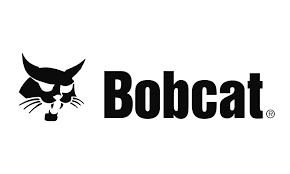

Comfort, ride, capacity, and visibility are all priorities at Bobcat. You’ll see that in their designs.
So what do Bobcat compact excavators run for? That will depend on the features, which you can specify if you want.
Used machines sell for $40,000 to even $90,000. Be prepared to spend at least $50,060 on a new compact excavator from Bobcat.
COMPARE-
Kubota
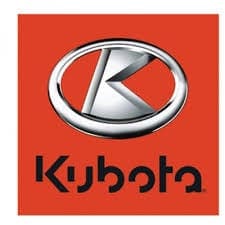

Kubota puts out several quality machines. They come in different sizes and provide low noise and good fuel efficiency. They’re also designed to be easy to operate, so they’re great if you haven’t operated a mini excavator before.
COMPARE-
Hitachi
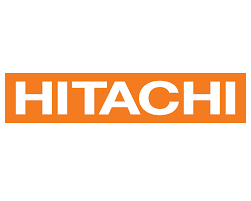

Safety features are a priority, so Hitachi is a good choice if you really want to make sure operations will go smoothly.
Hitachi machines are less expensive if you’re willing to consider buying used. You can find some under $10,100, while others are listed closer to $40,600.
COMPARE-
John Deere
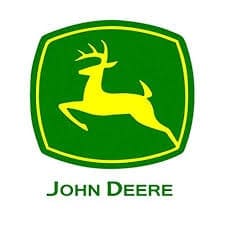

And, there are many attachments to choose from too. These include blades, brooms, augers, buckets, hammers, and mulchers.
Though this is a big name, you can find some used excavators for as low as around $13,600. Others are in the $30,700 to $40,010 range.
COMPARE-
New Holland


Are you interested in anti-theft technology? Then this is the place to look.
Expect to pay around $15,200 to $30,200 for a used New Holland mini excavator. You may be able to find some cheaper than that, though, if you’re willing to consider older models.
COMPAREHow to Calculate the Cost of a Mini Excavator
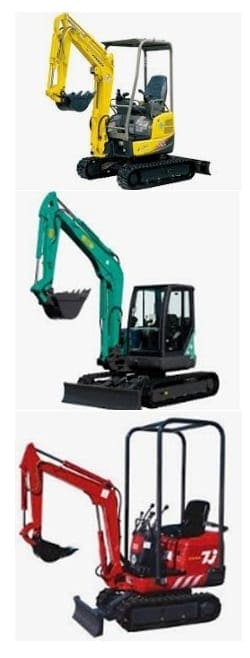

Calculating the cost of a mini excavator involves considering various factors:
- Base Price: Start with the base price of the model you’re interested in. Different models come with varying capacities and features.
- Attachments and Accessories: Mini excavators can have different attachments like buckets, hammers, or augers. Each will have its cost.
- Warranty and Service Packages: Extended warranties or service packages might increase the initial purchase price but can save costs in the long run.
- Financing: If you’re not buying outright, consider interest and finance charges.
- Taxes and Licensing: Depending on your region, sales tax, import duties, and licensing fees might apply.
- Delivery Costs: Depending on the dealer’s location, there might be shipping or delivery fees.
- Operational Costs: This includes fuel, maintenance, and repairs. While not part of the purchase price, it’s essential for total ownership costs.
Always get multiple quotes and consider total ownership costs, not just the purchase price.
Fees to Avoid When Buying a Mini Excavator
There aren’t any fees associated with buying a mini excavator. The only time you’ll need to worry about fees is if you’re renting.
When renting, you’ll have to pay fees based on the rental terms you agreed to. If you don’t like the fee schedule at one location, you’ll have other options elsewhere.
While fees may sound like a pain, they may be a better option than purchasing. Use your specific situation to determine what the best course of action is for you.
Pros and Cons of Renting Versus Purchasing Mini Excavators
Renting and purchasing mini excavators each have their distinct advantages and disadvantages. Let’s explore them:
Renting Mini Excavators
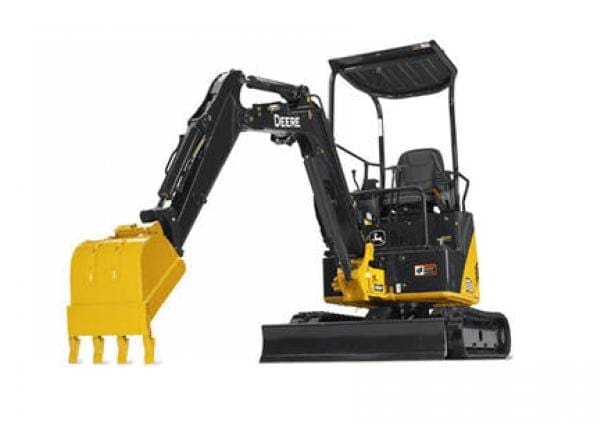
Pros:
- No Large Initial Investment: Renting avoids the substantial upfront cost of purchasing.
- Maintenance and Repairs: Typically, the rental company is responsible for maintenance and repairs, reducing your burden.
- Latest Models: Rental options often include the latest models with advanced technology.
- Flexibility: Renting provides the flexibility to choose different sizes and types of excavators for different projects.
- No Depreciation Costs: You avoid the depreciation costs associated with owning heavy equipment.
- Ideal for Short-Term Use: Renting is cost-effective for short-term or one-off projects.
Cons:
- Higher Cost for Long Term: Over an extended period, renting can be more expensive than owning.
- Availability Issues: The specific model you need may not always be available for rent.
- Less Control Over Equipment: You have less control over the maintenance and condition of the equipment.
- No Equity: Money spent on renting does not contribute to owning an asset.
Purchasing Mini Excavators
Pros:
- Long-Term Investment: Owning an excavator can be more cost-effective in the long run, especially for regular use.
- Asset Ownership: Builds equity and can be considered a business asset.
- Depreciation Benefits: Can be depreciated over its useful life for tax purposes.
- Customization and Familiarity: You can customize the machine to your specific needs and operators can become highly proficient with a specific machine.
- Always Available: You have the equipment available whenever you need it, without worrying about rental availability.
Cons:
- Upfront Cost: Requires a significant initial investment.
- Maintenance and Repair Costs: All maintenance, repair, and operational costs are your responsibility.
- Depreciation: The value of the excavator will depreciate over time.
- Storage: You need to have a place to store the excavator.
- Less Flexibility: You might be stuck with a type of excavator that may not be ideal for all types of jobs.
The decision to rent or purchase a mini excavator depends on your specific circumstances, including the frequency of use, financial considerations, and the nature of your projects. Renting may be more advantageous for short-term or infrequent needs, while purchasing may be more cost-effective for long-term, regular use.
12 Things to Consider Before You Buy a Mini Excavator
Before buying a mini excavator, there are several important factors to consider to ensure you make a decision that best suits your needs. Here’s a breakdown of the key aspects:
- Project Requirements: Understand the specific tasks you need the mini excavator for. Different models have varying capacities, sizes, and attachments suitable for different jobs. Consider the depth, reach, and power required for your projects.
- Size and Weight: The size and weight of the mini excavator affect its transportability and the type of terrain it can handle. Smaller models are easier to transport and better for working in confined spaces, but may have less power.
- Attachments and Features: Determine what attachments (like buckets, hammers, or augers) you need. Some mini excavators come with quick couplers that make changing attachments easier. Also, consider features like cabin comfort, control type (joystick or lever), and visibility.
- Engine Power and Performance: Assess the horsepower and the hydraulic system’s capabilities. Higher horsepower and a more robust hydraulic system can handle tougher jobs but may come at a higher cost.
- Brand and Dealer Support: Choose a reputable brand and ensure the dealer offers good after-sales service, including parts availability and repair services. Brand reputation can also impact the machine’s resale value.
- New vs. Used: Decide whether to buy new or used. New mini excavators come with the latest technology and warranties but are more expensive. Used equipment can be more affordable but might have wear and tear or outdated technology.
- Operating Costs and Maintenance: Consider fuel efficiency, maintenance requirements, and the availability of spare parts. Regular maintenance is crucial for the longevity of the equipment.
- Safety Features: Look for safety features like Rollover Protective Structure (ROPS), Falling Object Protective Structure (FOPS), emergency shut-off, and good visibility from the cabin.
- Price and Financing Options: Compare prices from different suppliers and consider your budget. Explore financing options if needed. Remember that the cheapest option may not always be the most cost-effective in the long run.
- Regulatory Compliance: Ensure the equipment complies with local regulations, especially regarding emissions and safety standards.
- Training and Operation: Consider the skill level required to operate the machine and whether you or your team need additional training.
- Resale Value: Some brands and models have better resale value than others. This might be an important consideration if you plan to upgrade or sell the machine in the future.
Take your time to research and compare different models and brands, and consider renting a similar model before purchasing to get a feel for its performance and suitability for your needs.
COMPARE QUOTESHow Much Does it Cost to Rent a Mini Excavator?
In general, you can usually rent a mini excavator for about $200-$225 a day, or for longer-term rentals $1500 a month.
Even if you look at used machines, mini excavators aren’t cheap. So it may be in your best interests to rent one instead of buying one outright.
Renting is perfect if you don’t have a huge, ongoing need for an excavator. If you only need one here and there for odd projects, renting is a great option.
So what does it cost to rent a mini excavator instead of buying one? Prices will differ depending on the machine and where you rent it from. You’ll also need to consider the rental terms.
Mini excavators can be rented on a daily, weekly, or monthly basis. Some locations may offer hourly rates as well. You decide what’s best for you based on your project needs.
The longer you rent the vehicle, the more you’ll pay. But, your rate may get better if you rent the excavator for longer.
If you’re looking to rent the excavator for only a few hours or a single day, plan to pay a few hundred dollars for it. A week will run you several hundred dollars and a month will cost a few thousand dollars.
Because of this, it’s better to purchase a mini excavator if you’re going to use it often. If you only need it short-term, though, renting is a good option.
COMPARE QUOTESAlways Compare Mini Excavator Prices
You should always compare when looking at mini excavator prices. Compare every specification that comes with each excavator.
Prices differ depending on many factors. Make sure you understand them if you want to get the best deal.
Consider brand names, any attachments that are included, how long the excavator has been in use, and if it’s better to buy new. You may want to consider renting, too.
Whichever option is best for you, go forward with it. You’ll love having an excavator all your own!
Most models run with a diesel engine and are mounted on a set of tracks. The tracks are rugged, heavy-duty models to make the machine practical in as many environments as possible. These units are seen in a variety of settings, including home and commercial construction, road building, land clearing, forestry and more. The price of a mini excavator is often related to the power and size of the machine.